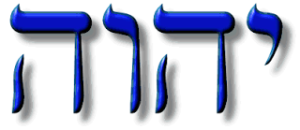 In this correspondence between man made ideas often trump the Bible. I am talking about the practice of writing “G-d” instead of “God.” All I can say is “You are right Phil. Well done!”
In this correspondence between man made ideas often trump the Bible. I am talking about the practice of writing “G-d” instead of “God.” All I can say is “You are right Phil. Well done!”
To: K___ B_____
From: “Phillip R. Johnson”
Subject: Cr–t-r?!
Dear K_____,adds:
I am so delighted to see the irascible Phil Johnson tear into this ostentatious practice of writing “G-d” instead of “God.”
For the uninitiated, this is an affectation often adopted by both Jews and Gentile Christians who are trying to get all cool and “Messianic” and Jewishistic, indulging in a Goyed-up version of that Pharisaical obscuring of “Yahweh” which has cursed Christian translations with the “Lord / LORD / LORD God / Lord GOD” absurdity for centuries. (Not that I have strong feelings about that issue, mind you.) It is done, we’re told, out of supposed reverence for God’s name and care for Jewish sentiments. So these poor souls write “G-d,” elliding the “o.” Sometimes they even efface other Divine titles the same way. (Phil’s correspondent even ellides the vowels to “Creator,” thus birthing the deformed “Cr–t-r” — I kid you not.)
Phil has excellent responses, as one would expect, some of which I’d not considered before. I now make bold to add some of my own.
If these folks were to be consistent about their practice, shouldn’t my name be written “Dani-l,” instead of “Daniel,” to omit the offensive theophoric element? Similarly, shouldn’t Isaiah be “Isai-h,” and Zechariah “Zechari-h,” and Israel “Isra-l”? Shouldn’t Joel be J–l? Shouldn’t Timothy be “Timoth-“? And since they’d not want to name pagan deities, shouldn’t Saturday be “S-t-rday,” and Wednesday “W-dn-sday”?
How does it honor God to substitute a well-known American-language blasphemy for His name? Ask any man on the street what “Geedee” (G-d) signifies. I guarantee he won’t reply, “Oh, that’s a reverential way of avoiding making God’s name common, in violation of the third commandment!” No, he’ll tell you it’s an abbreviation for a common blasphemy. And this is more God-honoring than simply writing God’s name?
As far as we know, none of the NT writers— NONE! — observed this practice. Paul (apostle to the Gentiles) did not write th–s instead of theos, nor did Peter (apostle to the Jews) write k-r–s instead of kurios. Certainly he did not write any church instructing that this be done. Of course, the Hebrew OT contains “Yahweh” nearly 7000 times, not counting the names with theophoric elements. The practice is without Biblical precedent.
Not only is it without Biblical precedent, it is against explicit Biblical commands and precedent. Biblical writers used God’s name constantly; the sacrosanct Yahweh appears some 6,823 times in the OT. Esther is remarkable in being the only book our of 66 not explicity to use one of God’s names. Moreover, how can one call on God’s name, swear by God’s name, glory in God’s name, or do any of these other worshipful, Biblical practices, if one plays games with God’s name?
The argument collapses in silliness. It is argued that ink (or bits and bytes) are too ephemeral to contain God’s name, or that written copies may be thrown into the trash, thus defiling it. But what is more ephemeral than breath? And into what horrid places might breath be blown? Yet are we further to disobey Scripture, by not even saying God’s names? Are we to grunt out “Guh-duh,” or worse, “Gee-dee,” instead of simply saying “God”?
If we are to write “G-d” so as not to offend the Jews, why is it OK to write “Y’shua”? If we believe that Christ is God, shouldn’t we write “Y-sh-“? But wait — that will offend the unbelieving Jews, too, since they deny Christ’s Deity! If our summum bonum in life is to order our practices by the strictures of those who have rejected their Messiah, mustn’t we do the same? Quite the dilemma… for the sacro-silly, anyway.
And while I’m on that, I’m sure these poor souls feel themselves to be special and hardcore and all for writing “Y’shua” and “Sha’ul,” instead of Jesus and Paul. But our Lord is never once in the Bible called “Y’shua.” Ever. Nor is Paul ever called “Sha’ul.” Why not? Because those are Hebrew (mis-)transliterations, and the New Testament is entirely in Greek. If this is their idea of being hardcore, shouldn’t they write Iesous, and Paulos? Of course, then, they’ll have to explain to everybody what the heck — pardon me, what the Gehenna — they’re talking about. Which leads me finally to this:
It really isn’t about God anyway, is it? It’s about the person. It’s about being different and special. It’s all about “Hey! Hey, look at me! I’m so different and extra-cool! Look at me, me me!” As I recall, C. S. Lewis referred to this sort of thing as “trying to be holier than God.” Since God Himself, in moving the writers to inscripturate His Word, felt no such compunction and issued no such commands, that is indeed all this is. It is “improving” on His Word. It is “helping” God, filling in all those nasty blanks He inadvertently left, but would have filled in Himself had He our foresight and insight. (I speak as a fool.) And if this is not the heart and soul of Christ-killing traditionalism, what is?
By contrast, it’s my observation that the sort of “different-ness” that glorifies God is believing and obeying His word as sufficient, and thus not needing our helpful supplements. That in itself makes us just as “different” as God wants us to be.
And isn’t that really what being a Christian is supposed to be all about?
Then there is the problem that some of these “Jew-tiles” head off for the heresy of modalism. (Though adumbrations of the truth of the Trinity appear literally all over the OT from Genesis to Malachi [pardon the Gentile canon-order], the concept is offensive and confusing to unbelieving Jews, so… out it goes!)
But perhaps more on that, another day.
 Triage is the process of determining the priority of patients’ treatments based on the severity of their condition. This rations patient treatment efficiently when resources are insufficient for all to be treated immediately. It may also be used for patients arriving at the emergency facility. The term comes from the French verb trier, meaning to separate, sift or select. – Wikipedia
Triage is the process of determining the priority of patients’ treatments based on the severity of their condition. This rations patient treatment efficiently when resources are insufficient for all to be treated immediately. It may also be used for patients arriving at the emergency facility. The term comes from the French verb trier, meaning to separate, sift or select. – Wikipedia
